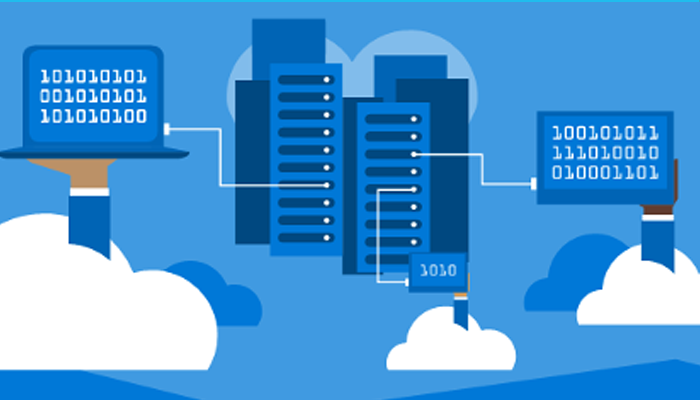Introduction
This is top class certification exam of Microsoft. It is designed by group of Microsoft advanced level official certification experts. It has covered all the aspects of depth in the technical questions and delivery methodology of official Microsoft certification by following the complete exam syllabus. This certification questions will give you the most realistic experience in the real world exam.
Exam Details:
This Exam contains multiple choices, multi selection and true or false questions.
Exam Time Limit: 90 Minutes
Exam Syllabus:
Administer
and Provision HDInsight Clusters
- Deploy
HDInsight clusters
·
Create a cluster in a private virtual network, create a cluster
that has a custom metastore, create a domain-joined cluster, select an
appropriate cluster type based on workload considerations, customize a cluster
by using script actions, provision a cluster by using Portal, provision a
cluster by using Azure CLI tools, provision a cluster by using Azure Resource
Manager (ARM) templates and PowerShell, manage managed disks, configure vNet
peering
- Deploy
and secure multi-user HDInsight clusters
·
Provision users who have different roles; manage users, groups,
and permissions through Apache Ambari, PowerShell, and Apache Ranger; configure
Kerberos; configure service accounts; implement SSH tunneling; restrict access
to data
- Ingest
data for batch and interactive processing
·
Ingest data from cloud or on-premises data; store data in Azure
Data Lake; store data in Azure Blob Storage; perform routine small writes on a
continuous basis using Azure CLI tools; ingest data in Apache Hive and Apache
Spark by using Apache Sqoop, Application Development Framework (ADF), AzCopy,
and AdlCopy; ingest data from an on-premises Hadoop cluster
- Configure
HDInsight clusters
·
Manage metastore upgrades; view and edit Ambari configuration
groups; view and change service configurations through Ambari; access logs
written to Azure Table storage; enable heap dumps for Hadoop services; manage
HDInsight configuration, use HDInsight .NET SDK, and PowerShell; perform
cluster-level debugging; stop and start services through Ambari; manage Ambari
alerts and metrics
- Manage
and debug HDInsight jobs
·
Describe YARN architecture and operation; examine YARN jobs
through ResourceManager UI and review running applications; use YARN CLI to
kill jobs; find logs for different types of jobs; debug Hadoop and Spark jobs;
use Azure Operations Management Suite (OMS) to monitor and manage alerts, and
perform predictive actions
Implement Big Data Batch
Processing Solutions
- Implement
batch solutions with Hive and Apache Pig
·
Define external Hive tables; load data into a Hive table; use
partitioning and bucketing to improve Hive performance; use semi-structured
files such as XML and JSON with Hive; join tables with Hive using shuffle joins
and broadcast joins; invoke Hive UDFs with Java and Python; design scripts with
Pig; identify query bottlenecks using the Hive query graph; identify the
appropriate storage format, such as Apache Parquet, ORC, Text, and JSON
- Design
batch ETL solutions for big data with Spark
·
Share resources between Spark applications using YARN queues and
preemption, select Spark executor and driver settings for optimal performance,
use partitioning and bucketing to improve Spark performance, connect to
external Spark data sources, incorporate custom Python and Scala code in a
Spark DataSets program, identify query bottlenecks using the Spark SQL query
graph
- Operationalize
Hadoop and Spark
·
Create and customize a cluster by using ADF; attach storage to a
cluster and run an ADF activity; choose between bring-your-own and on-demand
clusters; use Apache Oozie with HDInsight; choose between Oozie and ADF; share
metastore and storage accounts between a Hive cluster and a Spark cluster to
enable the same table across the cluster types; select an appropriate storage
type for a data pipeline, such as Blob storage, Azure Data Lake, and local
Hadoop Distributed File System (HDFS)
Implement Big Data Interactive
Processing Solutions
- Implement
interactive queries for big data with Spark SQL
·
Execute queries using Spark SQL, cache Spark DataFrames for
iterative queries, save Spark DataFrames as Parquet files, connect BI tools to
Spark clusters, optimize join types such as broadcast versus merge joins,
manage Spark Thrift server and change the YARN resources allocation, identify
use cases for different storage types for interactive queries
- Perform
exploratory data analysis by using Spark SQL
·
Use Jupyter and Apache Zeppelin for visualization and developing
tidy Spark DataFrames for modeling, use Spark SQL’s two-table joins to merge
DataFrames and cache results, save tidied Spark DataFrames to performant format
for reading and analysis (Apache Parquet), manage interactive Livy sessions and
their resources
- Implement
interactive queries for big data with Interactive Hive
·
Enable Hive LLAP through Hive settings, manage and configure
memory allocation for Hive LLAP jobs, connect BI tools to Interactive Hive
clusters
- Perform
exploratory data analysis by using Hive
·
Perform interactive querying and visualization, use Ambari Views,
use HiveQL, parse CSV files with Hive, use ORC versus Text for caching, use
internal and external tables in Hive, use Zeppelin to visualize data
- Perform
interactive processing by using Apache Phoenix on HBase
·
Use Phoenix in HDInsight; use Phoenix Grammar for queries;
configure transactions, user-defined functions, and secondary indexes; identify
and optimize Phoenix performance; select between Hive, Spark, and Phoenix on
HBase for interactive processing; identify when to share metastore between a
Hive cluster and a Spark cluster
Implement Big Data Real-Time
Processing Solutions
- Create
Spark streaming applications using DStream API
·
Define DStreams and compare them to Resilient Distributed Dataset
(RDDs), start and stop streaming applications, transform DStream (flatMap,
reduceByKey, UpdateStateByKey), persist long-term data stores in HBase and SQL,
persist Long Term Data Azure Data Lake and Azure Blob Storage, stream data from
Apache Kafka or Event Hub, visualize streaming data in a PowerBI real-time
dashboard
- Create
Spark structured streaming applications
·
Use DataFrames and DataSets APIs to create streaming DataFrames
and Datasets; create Window Operations on Event Time; define Window
Transformations for Stateful and Stateless Operations; stream Window Functions,
Reduce by Key, and Window to Summarize Streaming Data; persist Long Term Data
HBase and SQL; persist Long Term Data Azure Data Lake and Azure Blob Storage;
stream data from Kafka or Event Hub; visualize streaming data in a PowerBI
real-time dashboard
- Develop
big data real-time processing solutions with Apache Storm
·
Create Storm clusters for real-time jobs, persist Long Term Data
HBase and SQL, persist Long Term Data Azure Data Lake and Azure Blob Storage,
stream data from Kafka or Event Hub, configure event windows in Storm,
visualize streaming data in a PowerBI real-time dashboard, define Storm
topologies and describe Storm Computation Graph Architecture, create Storm
streams and conduct streaming joins, run Storm topologies in local mode for
testing, configure Storm applications (Workers, Debug mode), conduct Stream
groupings to broadcast tuples across components, debug and monitor Storm jobs
- Build
solutions that use Kafka
·
Create Spark and Storm clusters in the virtual network, manage
partitions, configure MirrorMaker, start and stop services through Ambari,
manage topics
- Build
solutions that use HBase
· Identify HBase use cases in HDInsight, use HBase Shell to create updates and drop HBase tables, monitor an HBase cluster, optimize the performance of an HBase cluster, identify uses cases for using Phoenix for analytics of real-time data, implement replication in HBase
How this exam is useful to you?
This exam is intended for the people who are preparing for the 70-775 Perform Data Engineering on Microsoft Azure HDInsight Certification. This exam is prepared exclusively as per the real certification exam. This will definitely help to check your skills before attempting the main exam. Also it will give the complete idea how main exam will be.
This exam will evaluate your skills and will give you report on how far you are skillful in 70-775 Perform Data Engineering on Microsoft Azure HDInsight certification exam.
In case you face any issues during the exam or you have any queries, email us at [email protected]
Wish you all the best for your certification exam and we are always ready to help you to get certified and grow in your career.
-
Rodriguez
Helped so much when needed
-
Jella
I have passed successfully with score of 90 percentage
-
Shai Lin
You made me grow
-
Yaloon
Complete syllabus is covered in this Azure certification exam
-
Noah
There is great amount of quality maintained in the Azure certification exam
-
Ye Yei
Highly impressive
-
Jawad
All your words are real
-
Noura
Loved and liked it
-
A K T
Amazing certification exam I have written
-
Amlna
Good quality
-
Morton Best
Worthable and affordable
-
Zakir
All the pressure is maintained in the Azure certification exam is very high quality
-
Sainin
Outstanding
-
Aziz
There is a great feel in writing the exam
-
Elizaveta
This is very well maintained as a real Azure certification
-
Somulu
Satisfied to review
-
Boumer
What an amazing place this is!
-
Quang
Great thought of connecting this Azure certification exam
-
Bodramani
This Azure certification exam needs to be handled very well and it is so nice
-
McGau
You gave me strength
-
Alvinda
Super cool exam experience
-
Eden
All real time
-
Alyssa Williams
Very happy to tell everybody and suggest everybody to write this Azure certification exam
-
Marty
Gave great amount of confidence
-
Soffiea
This certification exam has given me the feeling of real
-
will
Now I got confidence on Azure
-
Sarathchandra
I personally suggest this is the very good
-
Tachie
Very important certification exam
-
Memu
Best exam
-
Amie
This is there absolutely same like real Azure certification
-
Reshma
Very resourceful
-
Yanika
First time ever I am seeing better quality exam
-
Nilesh
Azure certification exam designed by experts
-
Craig
Very smooth exam experience
-
Nate
Good standards
-
Sukesh
After coming here I got confidence
-
Vera
Azure certification exam is very good and I understood all the concepts
Exam Details:
This Exam contains multiple choices, multi selection and true or false questions.
Exam Time Limit: 90 Minutes
Check the instructions before starting the exam:
Read the exam instructions carefully and follow them to avoid any issues while writing the exam.
· Check the exam time limit before you start the exam.
· It is highly recommended to have faster internet access.
· No power cut shall happen during the exam. Hence the power backup for your system/laptop.
· In case your system/laptop gets shut down abruptly due to power cut, internet connectivity issues or any other reasons, your exam will be ended and will be considered as one attempt completed.
· Exam browser window shall not be closed once exam starts otherwise exam will be ended abruptly and same with losing your attempt as well.
· While writing the exam, if you click on back button of the browser tab then your exam will be ended abruptly and attempt will be lost. Hence it is highly recommended not use to back button of the browser button while/after writing the exam.
· Once exam time is completed, exam will be submitted automatically. Hence it is recommended to keep checking the timer which will be available at the exam window.
In case you face any issues during the exam, please email us at [email protected]
Copy Rights:
These are exams are prepared exclusively by Vullam experts team. This is copy right content. Copying or distribution of any of the exam content will considered as the violation of the terms and conditions and strict action will be taken against him/her as per the law.
Once Exam Starts:
· Once you click on the Start the Exam button, your exam starts.
· Timer at the right side of the exam page indicates the time remaining.
· Use Previous Question or Next Question buttons only to go to previous question or to go next question respectively.
· You can also find the questions right side of the exam window where you can select the question which you wanted to answer first.
· Once all questions are answered, you can submit all the answers.
· If you do not submit all the answers, your exam will not be evaluated and you will lose the exam attempt.
· Even if exam time out is done, exam will be submitted automatically
Once after exam is submitted:
· Once exam is submitted, your result will be shown in the screen immediately.
· Result shows Pass/Fail along with the achieved score.
· In the result user can find the questions which were answered correct and wrong.
· Once exam is submitted, result will emailed to the registered email id of the user.
· If the result is Pass then user will get the certificate of the exam to their registered email id.
In case you face any issues during the exam or you have any queries, email us at [email protected]
Wish you all the best for your certification exam and we are always ready to help you to get certified and grow in your career.
You have not purchased/ subscribed this exam so no data available.
You have not purchased/ subscribed this exam so no data available.
Please subscribe to this exam to view the exam documents.





































